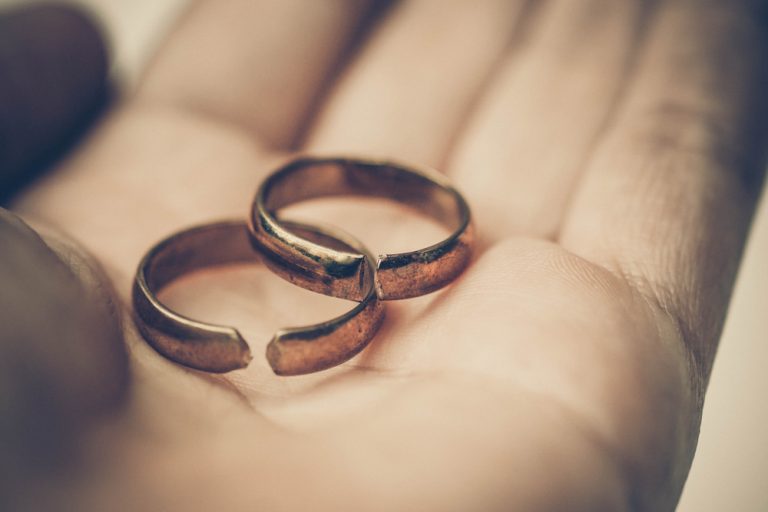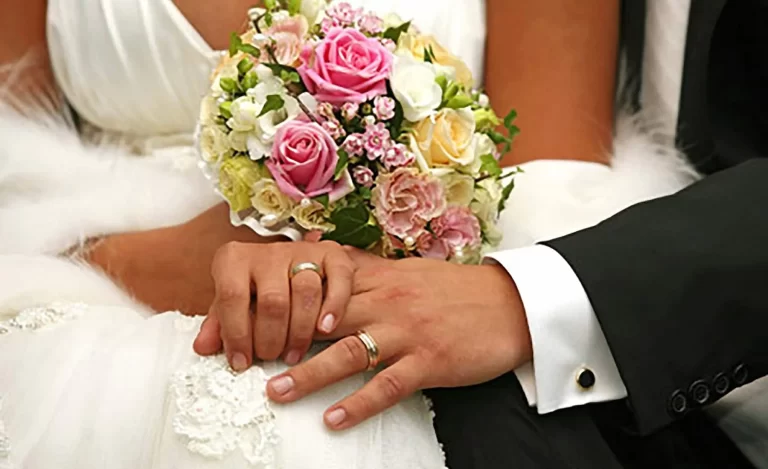First communion meaning and rules to make it
The First Communion is one of the seven most important sacraments for the life of man and the Catholic Church. It is about that moment in which the host that symbolizes the body of Jesus is received for the first time and the wine symbolizes the blood that Christ shed. This ceremony allows man to be formed in the church. It is also known as the communion of saints.
First Communion
For Catholic churches, the first communion represents a ritual that is part of the sacraments and is often done when one is still a minor, we refer to adolescence. Participation in this sacrament is done to receive the Eucharist for the first time by taking the body and blood of Jesus. It is a mandatory requirement that before taking the body and blood of Jesus Christ we are baptized and have made confession and penance.
Although in the Catholic Church all people who sincerely wish to celebrate the rite of their first communion at any age are very well received, but as we know it is usually carried out by children between 7 and 12 years of age collectively, I must mention, What is important and relevant is that the adequate prior preparation is received, as well as that each and every one of the requirements is met so that the sacrament can be received.
As we have already mentioned, this celebration takes place through the Eucharist ceremony and is officiated by a priest in most cases, although the bishop and archbishop could also dictate the ceremony. In Orthodox churches, communion takes place for the first time after children have been baptized, but for the Catholic Church it is important that children already have some use of reason to understand the importance of communion.
So when the little ones start asking you, What is my first Communion ? You can easily answer that it is a Catholic rite that is performed only the first time the Eucharist is to be received, explaining that the Eucharist is It deals with the reception in our life of the Body and Blood of Jesus Christ, and although the most suitable thing is that it is done from 8 years of age, it always celebrates it at any age as long as you have already been previously baptized.
It is important that they are mentioned that this is part of the 3 sacraments convened for Christian initiation baptism, eucharist and confirmation.
Origin First Communion
Surely you are wondering where the phrase first communion originates from? Well, the term communion comes from the Latin communio, which is defined by participation in common.
As we all know, the last supper that Jesus made was done in the company of his twelve disciples and this is precisely the origin of the act of the sacramental ceremony or also called communion ritual, this has its origins from the thirteenth century, when the Council of Lateran concluded that: all minors who wanted to and have already reached a certain age of discretion, which is given between twelve and fourteen years of age, could receive this sacrament of communion as a ceremonial act.
To be more specific we can refer to the date 1215 during the thirteenth century, in the seventeenth century the first communion began to happen as an act without any relevance because at this time children were not seen as noble people and considered irrelevant among the whole fairly medieval and trivial society.
It was not until after the Catholic reform that they began to give it the importance that this sacrament deserves since it is about the initialization of man in the word of the gospel, as a response to said reform and thanks to the fact that from the beginning it was appreciated considerably. more to minors is that, consequently, communion becomes a significant event in people’s lives.
In the 20th century, the first communion became much stronger and began to be seen as a ceremony of considerable importance for all Catholic and Orthodox churches, just as the faithful of these religions began to take the sacrament more into account, instilling it in the little ones. from home throughout their lives.
In one of the many studies carried out since the beginning of time until now, it shows us that in 1995 among Catholics or people belonging to this religion, already adults, who on average were between 40 and 60 years old, remembered their first communion as one of the most important acts or moments in your life.
And this was answered in the same way by 90% of the population to which the survey was conducted, and 35% of them say that although time had passed their parents always kept some memory of that moment and that today they greatly appreciate and more when it comes to photographs.
What is needed to receive the Eucharist?
We already know that all people who wish to perform the first communion can do so, but to carry out this sacrament some prerequisites are needed so that they can participate in the ceremony.
The first thing we must know is that to participate in this religion and we must belong to the Catholic faith and have received the sacrament of baptism beforehand, this sacrament usually takes place the first years after the birth of the baby, it is about the presentation of the baby in the eyes of God and the Catholic Church.
The next thing we need to know is that you need to be prepared to receive the Eucharist, what do we mean by this? the catholic church is in charge of structuring different catechesis courses which allows it to instruct and evangelize in the most appropriate way the children, adolescents and adults who will comply with the sacrament, it is in this way that everyone comes to understand the importance of the first Communion.
They are usually ordained priests, ordained religious or any person who is designated who is faithful to the Catholic Church but is not a member of the clergy, of course, as long as the latter are authorized by the priesthood, they are the responsible persons to prepare postulants to receive the Eucharist.
One of the things of great importance and which is very, very necessary is that the postulant or participant participates in the sacrament of penance or also known as confession, that is the moment where before a priest confesses all the sins committed in the course of our lives and after this confession the priest grants you divine forgiveness but before receiving the Eucharist he asks you to perform a penance that consists of making prayers for the healing of our souls.
There are very serious sins, one of them is listening to other people’s confessions and spreading them saying who they belong to. These types of actions are only forgiven by the Holy Father and they can receive much stronger penances than praying.
Finally, you need a prior registration that you make by requesting the church, parishes and in some cases a Catholic educational institution in which you mention your interest in receiving the sacrament of communion, and these are in charge of all ecclesiastical aspects. that the ceremony needs.
So returning:
- The person must be previously baptized in the Catholic Church,
- You have to prepare for this sacrament by attending courses known as catechesis, in which you will be taught to understand the Gospels. It is absolutely mandatory that before receiving the Body of Christ,
- The person has to be confessed and after the priest has forgiven his sins, he will proceed to participate in the rite of Communion.
What represents candles and bibles for first communion?
Using candles and bibles for the first communion , accompanied by the clothing is very common today, here we explain what they symbolize:
-
Sailing
It has become daily that people who make their first communion, in their right hand carry a white candle, this is lit at the beginning of the liturgy of the Eucharist, by the fire of the Paschal candle that is the symbolization that Jesus has risen. It is a light that represents the existence of Christ who illuminates our paths in all circumstances.
John 8 in verse 12 tells us that: Jesus is the light of the world
12: Again Jesus spoke to them, saying: I am the light of the world; whoever follows me will not walk in darkness, but will have the light of life. 13: Then the Pharisees said to him: You testify about yourself; your testimony is not true.
14: Jesus answered and said to them: Although I testify about myself, my testimony is true, because I know where I have come from and where I am going; but you do not know where I come from, nor where I am going.15: You judge according to the flesh; I don’t judge anyone. 16: And if I judge, my judgment is true; because it is not I alone, but I and the one who sent me, the Father.
17: And it is written in your law that the testimony of two men is true. 18: I am he who testifies about myself, and the Father who sent me testifies about me. 19: They said to him: Where is your Father? Jesus answered: You neither know me nor my Father; If you knew me, you would also know my Father.
20: These words Jesus spoke in the place of offerings, teaching in the temple; and no one arrested him, because his time had not yet come.
It means that from the moment the candle holder lights it, they receive the light of Jesus Christ as the guide who will always illuminate the steps that are taken towards eternal life. The bearer will receive this light as a mission which must address and guide all men with the testimony of him for the rest of his life. Well, in the bible he says “You are the light of the world”.
-
The Bible
The bible that is carried by the person who is going to make the communion is nothing more than the symbolization that God through Jesus invites us to read the testimonies that appear in it, it is the word that will accompany us for the rest of We can give our lives a meaning that says from today I promise through the church that I will frequently read the sacred scriptures to know how I should and that Jesus lived, that is what the bible should represent for each one of us .
John 14 in verse 23 tells us about: The promise of the Holy Spirit
15: If you love me, keep my commandments. 16: And I will pray to the Father, and he will give you another Comforter, so that he may be with you forever. 17: the Spirit of truth, whom the world cannot receive, because it neither sees nor knows him; but you know him, because he dwells with you, and he will be in you.
18: I will not leave you orphans; I will come to you. 19: Still a little, and the world will see me no more; but you will see me; because I live, you will also live. 20: On that day you will know that I am in my Father, and you in me, and I in you.
21: He who has my commandments and keeps them, he it is who loves me; and whoever loves me will be loved by my Father, and I will love him and manifest myself to him. 22: Judas (not Iscariot) said to him: Lord, how is it that you will manifest yourself to us, and not to the world?
23: Jesus answered and said to him, He who loves me will keep my word; and my Father will love him, and we will come to him, and make our abode with him. 24: He who does not love me, he does not keep my words; and the word that you have heard is not mine, but the Father who sent me. 25: I have told you these things while I was with you.
It is very well known that the sacred scriptures are totally valuable for the Catholic Church, it is for this reason that the participants who wish to make the first communion on the day of the Eucharist carry a bible in their hand, it is that it should be our first option. to know how to act in life, in the bible there are all the answers to any concern you may have, it is the solution to any problem, it is the firmness of the christian faith.
What we need to know to make a good confession
It is very normal that you feel nervous at the time of making your first confession, and especially if it is about children, that is why I will leave you steps for a good confession, for first communion children:
The first thing you can do is explain these questions to your children:
- What is sin?
Sin is all that voluntary rebellion that in the eyes and the law of God is not right, here you can explain or read the ten commandments.
- How can it be sin? Sin can be:
-
- Venial sin: that are of Thought, word little serious sin that does not deprive the soul of the grace of God
- Serious or mortal sin: Serious sin is the violation with full knowledge and willful consent of the commandments of God in a serious matter.
- What is Penance?
It is the sacrament responsible for absolving the sins committed after Baptism until today.
- When is the Sacrament of Penance received?
The sacrament of penance is received after we have made confession well and received absolution of our sins.
- At the moment of confessing well, we must do things that are necessary
-
- Perform the examination of conscience.
- Feel sorrow for sins.
- Have purpose of amendment.
- Tell the sins to the confessor.
- Fulfill the penance.
Explanation of the expression: “Wash inside”
The best way to explain to children so that they can understand what confession is and why it is so necessary, give them the example of cleanliness, explain that just as dishes, clothes and our bodies are washed when they are dirty, thus it is necessary for us to wash ourselves inside so that our soul remains clean.
Remember that God needs us to be the best version of ourselves, He needs us to be wiser and more mature, less and less imperfect, and of course, more and more holy. Well, always remind them that the saints are friends of us but also of God. And for the sacraments of confession and communion it is important to achieve this as objectives.
First Communion Results
This is an act of faith in the life of all believers in Jesus Christ who belong to the Catholic Church and with which a succession of future obligations are established for the communicants, and of course the main one will always be the practice of this sacrament of communion of the hand with the sacrament of confession or penance, this should be done as many times as possible.
At the same time, it is expected that after the celebration of the first communion all communicants have acts that are consistent with what they learned in the church and correspond to the Catholic faith so that throughout their lives they honor the communion they obtained with God.
It is extremely important that each communicant commits to comply with the commandments that God imposed on us and the church taught us, as well as respecting the dogmas of the Christian faith and particularly those that belong to the Catholic Church.
It is in later years when the Catholic begins to mature both physically, mentally and spiritually, he must participate in the following sacraments: confirmation and when he is fully ready to share the rest of his life in the company of his loved one, he must present himself in the church to fulfill the sacrament of marriage, which will be consecrated by God in the family union but for now it is very good to start with baptism and first communion.
There are adults who have not yet been baptized and for this reason have not complied with the sacraments, as we already know, the Catholic Church allows them to perform their sacraments, whether it be first communion or express confirmation at any age, because we know that when the adult performs These acts of his own free will will surely never repent.
The first thing that is done in the Catholic Church is to congratulate them for making that decision alone, then they invite them to participate and receive the courses that we call catechesis to prepare them and teach them the Gospel, in this way they enter the word of God. In each parish there should be a group of people as we mentioned before, available to teach and make the preparations for these sacraments to be carried out:
There are things that should be taken into account before making the first communion and confirmation as an adult:
The first thing to know is that the adult must not be civilly married if they wish to comply with these sacraments and they cannot be sympathizing under the same roof with a partner without first being married.
Other points that should also be clear that are sometimes unknown, is the fact that an adult who wishes to perform baptism will have to perform the 3 sacraments. I will explain to you the sacraments of baptism, the Eucharist and confirmation.
I explain to them: “An adult shows up informing that he wants to perform baptism but only baptism” that is, he does not want to perform neither the first communion nor the confirmation, because this will not be possible, in the Catholic churches how much is already known If you are an adult and wish to participate in a sacrament, you must comply with the others so that your request can be carried out.
It could be said that they are all carried out at the same time, it means that a single sacrament cannot be administered without seeing the others fulfilled, even if it is only the initialization of Christianity such as baptism, one must participate in all the remaining sacraments .
Petitions for First Communion
The petitions for the first communion mass are made by their postulants. It is very well known that in the masses that take place in Catholic churches there is always a time for such petitions and here I will show you which ones are used and which are often used:
- For the Holy Church, so that God grants her to always be the faithful partner of our Lord Jesus Christ. Let us pray to the Lord.
- For the first Latin American pope, Father Francisco, for the clergy, for the Archbishops, the officiants and especially for the father (name of the father who leads the mass), so that the Lord fills you with infinite blessings and much wisdom and this way they can communicate the message of the Gospel. Let us pray to the Lord.
- For world peace, so that all ambitions are suppressed, injustices are eliminated and all feelings of enmity disappear and in this way love and peace flourish throughout the world. Let us pray to the Lord.
- For the rulers of each country, city and state, so that they know which is the path of good and move away from all kinds of personal ambitions that are harmful to others. Let us pray to the Lord.
- For each and every one of our families, our parents, siblings, grandparents, uncles, nephews and cousins, so that we may always live in agreement, harmony and union in Christ our Lord. Let us pray to the Lord.
- For all the people who follow the works of God, so that on earthly pilgrimage, they inform their neighbor of the victory of the risen Jesus Christ. Let us pray to the Lord.
- For the boys, girls, adolescents and adults who are celebrating their first communion today and why this celebration lasts and takes place many more times throughout their lives. Let us pray to the Lord.
After all the requests, a final action is carried out in which the parents of the applicants give a few short words.
catechism prayers
In the catechism prayers for the first communion all must be found, as has already been mentioned, the applicants to be able to celebrate the first communion must participate in a course where they will learn about the gospels and are prepared to receive the body and blood of Jesus Christ here we will mention the most common ones such as:
-
To the Guardian Angel
Angel of my guardian, my sweet company, do not forsake me night or day Angel of God, you are my guardian, since sovereign mercy has entrusted me to you, enlighten me, keep me, direct me, govern me. Amen
-
The Glory be to the Father
Glory to the Father, and to the Son, and to the Holy Spirit. As it was in the beginning, now and forever, and to the ages of ages. Amen
-
Our father
Our Father, who art in heaven, hallowed be your Name; let your kingdom come; Thy will be done on earth as it is in heaven. Give us today our daily bread; forgive our offenses, as we also forgive those who offend us; lead us not into temptation, and deliver us from evil. Amen.
-
Ave Maria
God save you, Mary, full of grace; the Lord is with you; Blessed are you among all women, and blessed is the fruit of your womb, Jesus. Holy Mary, Mother of God, pray for us sinners, now and at the hour of our death. Amen.
-
Prayer to the Holy Spirit
Come, Holy Spirit, fill the hearts of your faithful All: And kindle in them the fire of your love. Leader: Lord, send your Spirit and everything will be created. All: And the face of the Earth will be renewed. Let us pray: O God, who filled the hearts of your faithful with the light of the Holy Spirit; grant us that, guided by this same Spirit, we feel righteously and always enjoy your comfort. Through Jesus Christ Our Lord. Amen.
-
act of contrition
My God, with all my heart I am sorry for all the evil I have done and all the good I have failed to do. By sinning, I have offended You, who are the supreme good and worthy of being loved above all things. I firmly propose, with the help of your grace, to do penance, not to sin again, and flee from occasions of sin. In the name of the father, of the son, of the holy spirit. Amen.
-
I confess
I confess before God Almighty, and before you brothers that I have sinned a lot in thought, word, deed and omission.
Because of me, because of me, because of my great fault. That is why I ask Holy Mary ever Virgin, the angels, the saints and you brothers, to intercede for me before God, Our Lord. Amen.
-
The Apostles’ Creed
I believe in God, Almighty Father, Creator of heaven and earth. I believe in Jesus Christ, his only Son, our Lord, who was conceived by the work and grace of the Holy Spirit, was born of the Virgin Mary, suffered under the power of Pontius Pilate, was crucified, died and was buried, descended into hell, on the third day he rose from the dead, ascended into heaven, and is seated at the right hand of God, the Father Almighty. From there he is to come to judge the living and the dead. I believe in the Holy Spirit, the holy catholic Church, the communion of saints, the forgiveness of sins, the resurrection of the body and eternal life. Amen.
themes for first communion
Among the themes for first communion we could mention several which we will explain as follows, a first part that consists of 6 themes and a second part that costs 6 more themes:
Part I
Topic 1: God created man and gave him supernatural life: This topic states that God was the one who created us and the presence of his Spirit is what gives us the opportunity to reach the fullness of life, as an image and likeness of God.
Theme 2: God wants us to live as his children, the renunciation of evil: This argument explains the promises to renounce sin, which were made on our behalf at our Baptism.
Topic 3: The Commandments of the Law of God: Here we are told, what are the Commandments of the Law of God? And at the same time we are explained that it is not about pure norms but a way for the human being to achieve happiness, freedom and the fullness of life. For the Law of God is the alliance of love that he makes with humanity, so that it reaches its fulfillment and liberation.
Topic 4: The Church and its mission: It is at this point that the characteristics of the Church that Christ founded and its mission are revealed to us.
Topic 5: Sin separates us from God: With this topic it is customary to teach us what is sin?, the types of sin and its consequences.
Theme 6: The Sacrament of Reconciliation: It is one of the most beautiful themes because it tells us that the Sacrament of Reconciliation and God’s forgiveness.
Part II
Topic 1: Jesus saves us through sacrifice: in this content we are told about the mission of Christ, of coming into the world out of love and giving his life in order to save us, fulfilling the will of his Father.
Topic 2: The Last Supper, institution of the Eucharist: For the realization of the first communion this point is fundamental since it speaks of the Sacrament of the Eucharist, Awareness about the value of the Sacrament of the Eucharist, for being the real sacramental presence of Christ and the privilege that being able to approach him represents.
Topic 3: The Sacrifice of the Mass: Here we are told what the Mass is and that its purpose is to motivate us to attend and actively participate in the Mass.
Topic 4: Preparation for Christ’s Banquet: Explains how we should prepare ourselves to receive the Body and Blood of Christ and makes you aware that receiving Communion requires special provisions and preparation.
Topic 5: The imitation of Christ and prayer: in this part we are referred to how we can imitate Christ and prayer. Its main objective is to recognize the importance of imitating Christ and making prayer a means to reach Him.
Topic 6: The Virgin Mary: Explains the mission of the Virgin Mary, and by learning more about her, we increase our love and devotion to Mary.
Sacrament of Reconciliation
Before making the holy hour of the first communion we must celebrate the sacrament of reconciliation
- Orientation: The celebration of reconciliation should take place at the end of the catechesis on the sacrament of penance before beginning the catechesis on the Eucharist.
-
- Introductory meeting celebration: this is the meeting which can be spontaneous, or in dialogue with the children.
- liturgy of the word; it is a reader who carries the lectionary or the bible, which contains the word of god.
- Homily which must be done very closely to the biblical text.
- Examination of conscience is the moment to pronounce that one is a sinner.
- Rite of reconciliation: – when the examination of conscience is finished, the confession of sins begins.
- The “I confess” prayer is recited at the end of the confession of sins.
- Absolution: – the prayer is initially made over all the penitents.
- Communal penance and thanksgiving. – a prayer of penance-thanksgiving is made, you can recite Psalm 135
- Final rite – farewell to the blessing that is intended.
Holy hour for first communion
The holy hour for children of first communion, it is about the celebration of this, they will wonder how it is carried out, because this is one of the most frequent ways:
It starts with:
- Before beginning, a catechist leads the assembly, welcoming and inviting active participation in the celebration. at that moment silence is requested and they are asked to act discreetly at the moment of the photos so as not to distract the assembly in the celebration.
- It proceeds to make the entrance procession, where it is customary that it is preceded by the cross and two candles (forming the postulants who are going to receive communion and the presiding priest).
- The chants of the proper of the mass should respect the biblical or traditional words.
The celebration is carried with the opening rites.
- liturgy of the word
- The homily.
- The profession of faith.
- The prayer of the faithful.
- The profession of offerings.
- The Eucharistic Prayer.
- Our father.
- The rite of peace.
- The communion.

Hello! Let me enthusiastically introduce myself as a dedicated blogger fueled by an intense passion for meticulously crafting insightful and well-researched blogs. My mission revolves around providing you, dear readers, with a veritable treasure trove of invaluable information.







